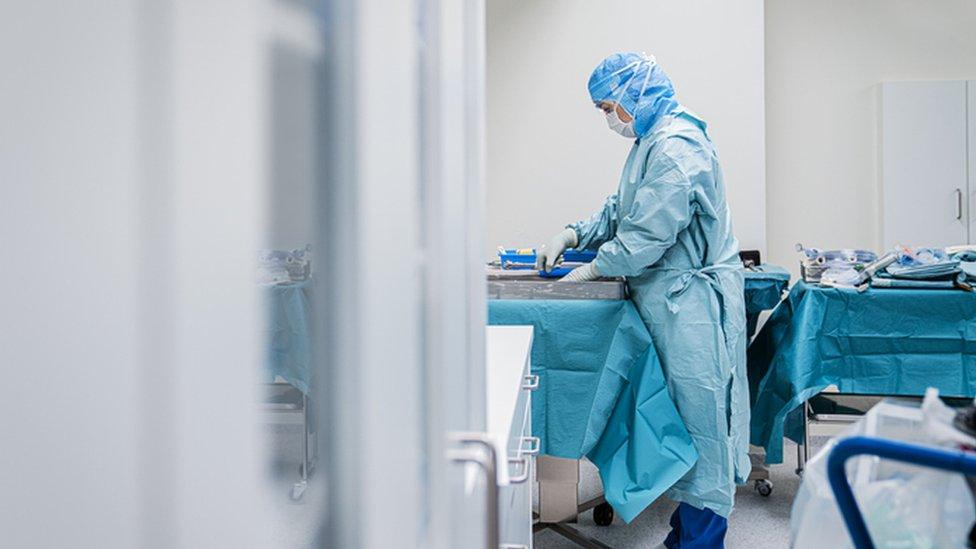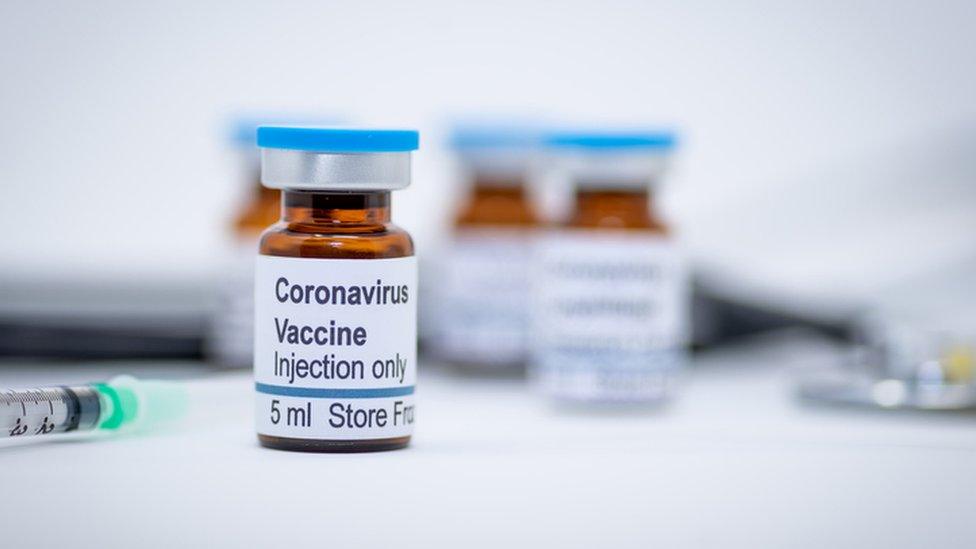Covid in Scotland: Health leaders warn NHS could be 'overwhelmed'
- Published

Clinicians are warning health services could be overwhelmed by any surge in coronavirus cases after restrictions were temporarily eased at Christmas.
The Scottish Academy of Medical Royal Colleges and Faculties also said the new faster spreading strain of the virus could create a "perfect storm".
They warned it could take months for vaccinations to alleviate pressure on the "severely stretched" system.
However Scotland's clinical director denied the system could be overwhelmed.
Prof Jason Leitch said measures were already in place to increase capacity where it was needed.
But the Scottish Academy of Medical Royal Colleges and Faculties, which includes anaesthetists, GPs and surgeons, said the short term situation for the NHS remained "bleak", despite hope from the vaccine.
The warning comes a day after the Scottish government put mainland Scotland into level four restrictions in response to the new more transmissible strain of coronavirus.
Latest Scottish government figures, external showed on Sunday that 740 new cases of Covid-19 have been reported across the country.
In Dumfries and Galloway health officials said they feared the new strain could be driving a "rapid increase" in infections in the area after 64 cases of Covid-19 were confirmed in Wigtownshire.
While reports have indicated the Oxford/AstraZeneca vaccine could be approved within days, the academy said restrictions would still be needed for some time.
'Severely stretched'
In a statement they said: "We know there is hope on the horizon with the rollout of a national immunisation programme, with further vaccines likely to be approved shortly.
"However, it will take months for this to make a significant difference, and the short-term situation facing our NHS and public health services remains bleak."
They said the NHS and social care services across Scotland were now on an emergency footing and while work had been done to reduce infection rates, the new strain of the virus would add pressure in the days and weeks ahead.

"We are gravely concerned that this could lead to the NHS being overwhelmed," the organisation said.
They called on the public to recognise the severity of the situation and take the necessary steps to support health and social care services.
Elective surgeries
"Our general practices are exceptionally busy and our hospitals are already near capacity. We risk facing a perfect storm of challenges if we don't take collective action now to prevent further spread of Covid-19."
But Scotland's national clinical director, Prof Jason Leitch, denied the system faced being overwhelmed.
He told the BBC: "We're not at risk of overwhelming the health care system.
"But it's not quite as simple as a 'yes no' answer, because we can double, treble, quadruple our care for Covid - the number of beds, the number of intensive care beds - we can absolutely do that. We're ready for it, we have plans for it.
"But you can't do that at no cost to other elements of the health service.
"We don't have a spare thousand doctors and nurses just standing by waiting to do something, so if we have to do more intensive care for Covid, which I really hope we don't, then we will have to take away from somewhere else."
Prof Leitch said efforts had been made to maintain as much of the health service as possible, with hopes that elective surgeries would continue right through the winter.
But he added: "The reality is, depending on what happens over the next couple of weeks, we may have to cut back some of that in order to make room for Covid care."
The Scottish government said it was working closely with health boards to ensure the NHS was prepared for additional pressures.
A spokeswoman said: "Our winter planning process includes assessing our readiness across all aspects of health and care, including Test and Protect, vaccinations, PPE supplies and the maintenance of essential services, including urgent and emergency.
"As part of the specific response to Covid-19, boards will maintain the ability to double their ICU capacity within one week, treble in two weeks and, if required, extend this to over 700 in total across Scotland. In addition, to support this, over 60 ICU and supportive care medicines, as well as supplies of Covid-19 treatments, have been centrally procured."

